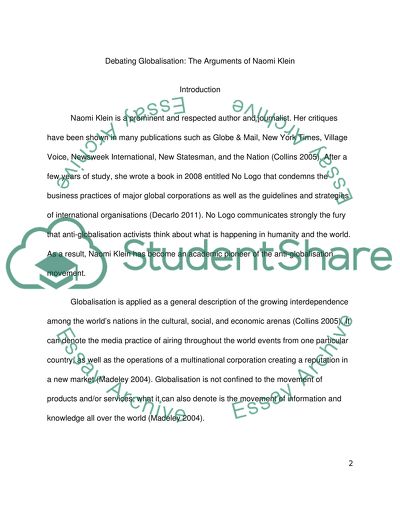Cite this document
(“Debating Globalisation: The Arguments of Naomi Klein Essay”, n.d.)
Retrieved from https://studentshare.org/environmental-studies/1408543-debating-globalisation-the-arguments-of-naomi-klein
Retrieved from https://studentshare.org/environmental-studies/1408543-debating-globalisation-the-arguments-of-naomi-klein
(Debating Globalisation: The Arguments of Naomi Klein Essay)
https://studentshare.org/environmental-studies/1408543-debating-globalisation-the-arguments-of-naomi-klein.
https://studentshare.org/environmental-studies/1408543-debating-globalisation-the-arguments-of-naomi-klein.
“Debating Globalisation: The Arguments of Naomi Klein Essay”, n.d. https://studentshare.org/environmental-studies/1408543-debating-globalisation-the-arguments-of-naomi-klein.


